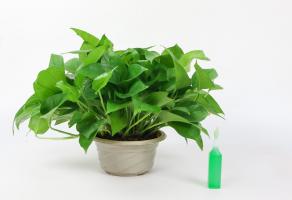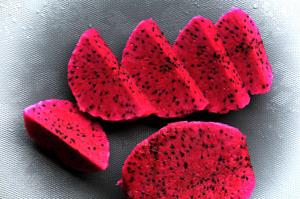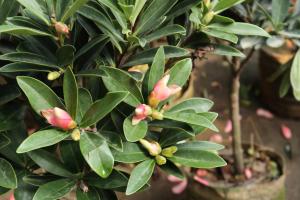What are Small Plastic Plant Pots Called?
Small plastic plant pots are commonly used for gardening purposes. They come in various sizes, colors, shapes, and designs to cater to different plants and gardening needs. These pots are an excellent option for those who don't have the luxury of space or a garden to grow their plants. They are also great for indoor gardening and as planters for small spaces.
Types of Small Plastic Plant Pots
There are different types of small plastic plant pots available in the market today. Some commonly used ones include:
Standard Plastic Pots: These are the most basic type of plastic pots available in the market. They come in various sizes and are lightweight, which makes them easy to move around. They are also affordable and can be reused several times depending on the quality of plastic used.
Decorative Plastic Pots: These pots are perfect for indoor gardening and decoration. They come in various designs, shapes, and colors to add a touch of beauty to your plants.
Self-Watering Plastic Pots: As the name suggests, these pots are designed to water the plant automatically. They come with a built-in water reservoir that keeps the plant moist without the need for frequent watering. They are ideal for those who have a busy lifestyle and cannot tend to their plants regularly.
Advantages of Small Plastic Plant Pots
Small plastic plant pots offer numerous advantages that make them a popular choice among gardeners. Some of these advantages include:
Lightweight: Plastic plant pots are lightweight, which makes them easy to move around and transport.
Affordable: Plastic pots are relatively cheap compared to other materials. This is particularly beneficial for gardeners who want to save money on their gardening expenses.
Durable: High-quality plastic plant pots can last for several years with proper care and maintenance. They are also less likely to break or crack compared to other materials like terracotta or ceramic.
Easy to Clean: Plastic pots are easy to clean and disinfect, which reduces the risk of plant disease and pests.
Water Retention: Plastic pots are excellent at retaining water, which is particularly beneficial for plants that require a lot of water.
Disadvantages of Small Plastic Plant Pots
While plastic plant pots offer several advantages, they have some disadvantages that you need to be aware of. These include:
Non-Biodegradable: Plastic pots are not biodegradable and can take several years to decompose. This makes them a significant contributor to environmental pollution if not disposed of properly.
Heat Retention: Plastic pots can absorb and retain heat, which can cause the soil temperature to rise above optimal levels. This can be detrimental to some plant species.
Bland Appearance: Standard plastic pots are often plain and unattractive, which may not be suitable for decorative purposes.
Inferior Quality: Low-quality plastic pots can break or crack easily, which can be frustrating for gardeners who have invested time and money in their plants.
In Conclusion
In summary, small plastic plant pots are a popular option for gardeners due to their affordability, durability, and lightweight nature. However, they have some disadvantages that need to be addressed, including their non-biodegradable nature, heat retention, and bland appearance. It's essential to use high-quality plastic pots that are recycled and disposed of correctly to reduce the negative impact on the environment.

 how many times do yo...
how many times do yo... how many planted tre...
how many planted tre... how many pine trees ...
how many pine trees ... how many pecan trees...
how many pecan trees... how many plants comp...
how many plants comp... how many plants can ...
how many plants can ... how many plants and ...
how many plants and ... how many pepper plan...
how many pepper plan...





























